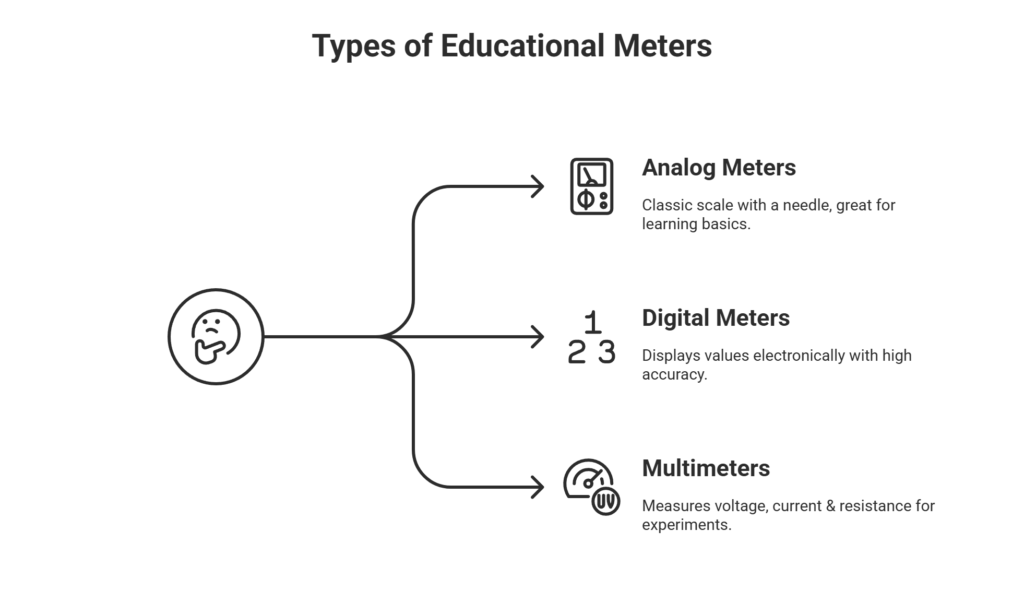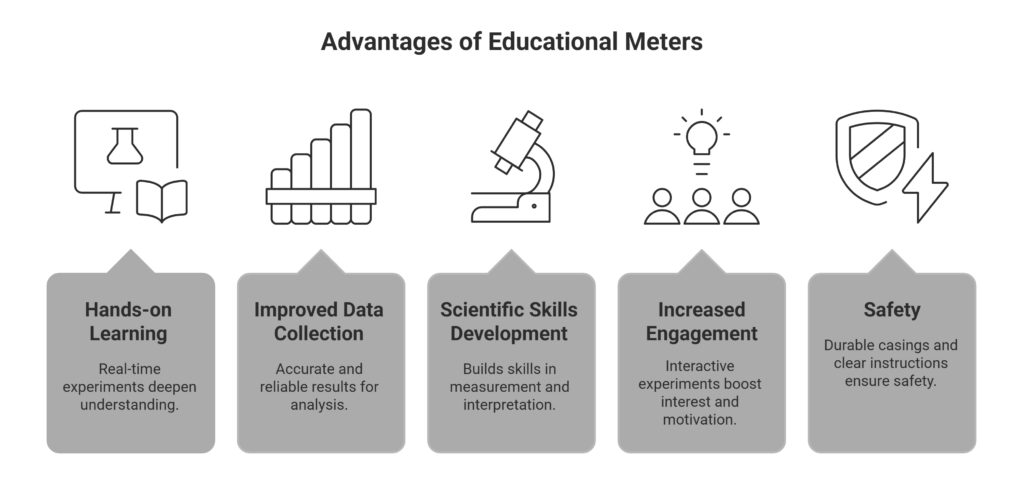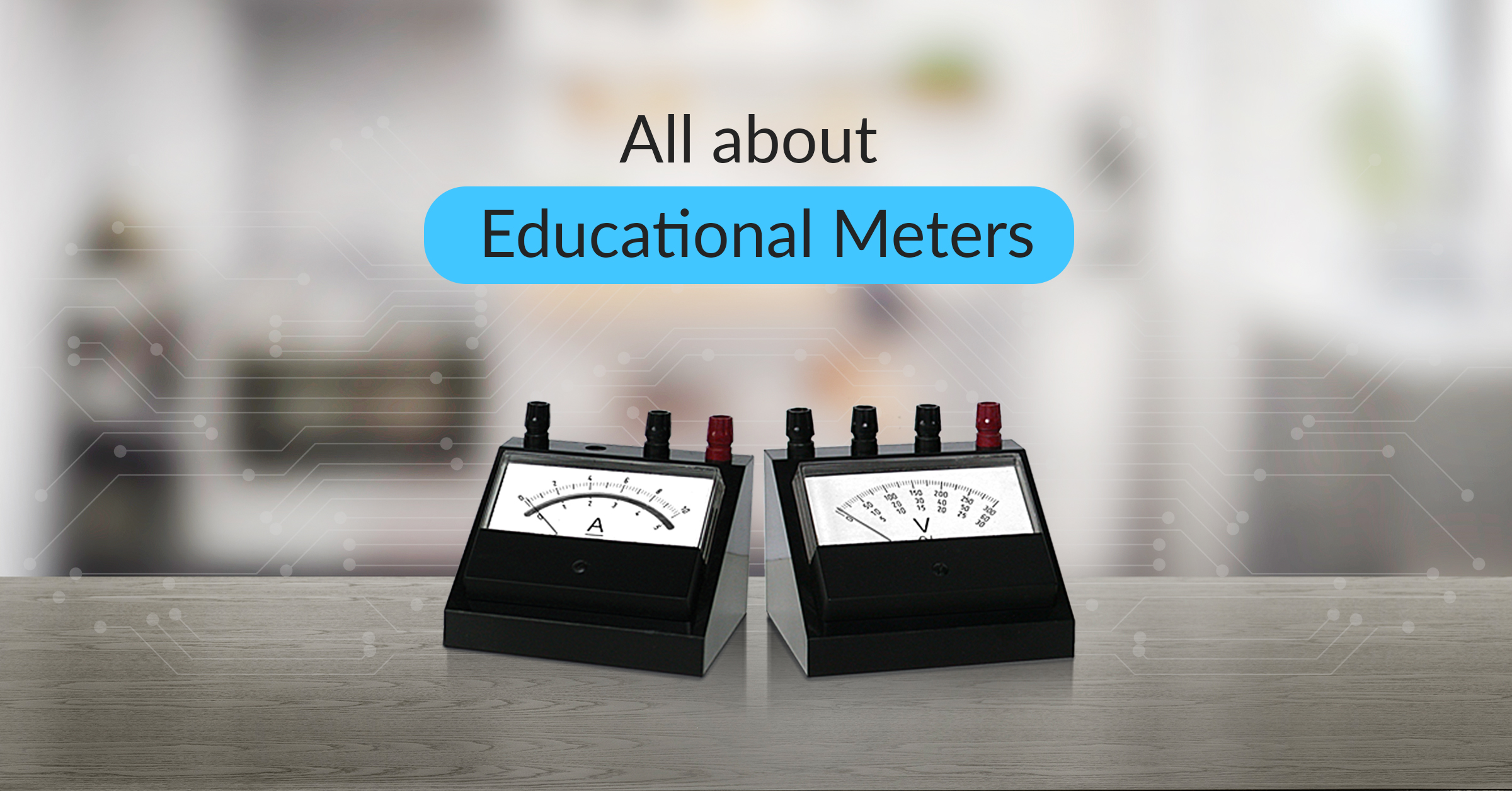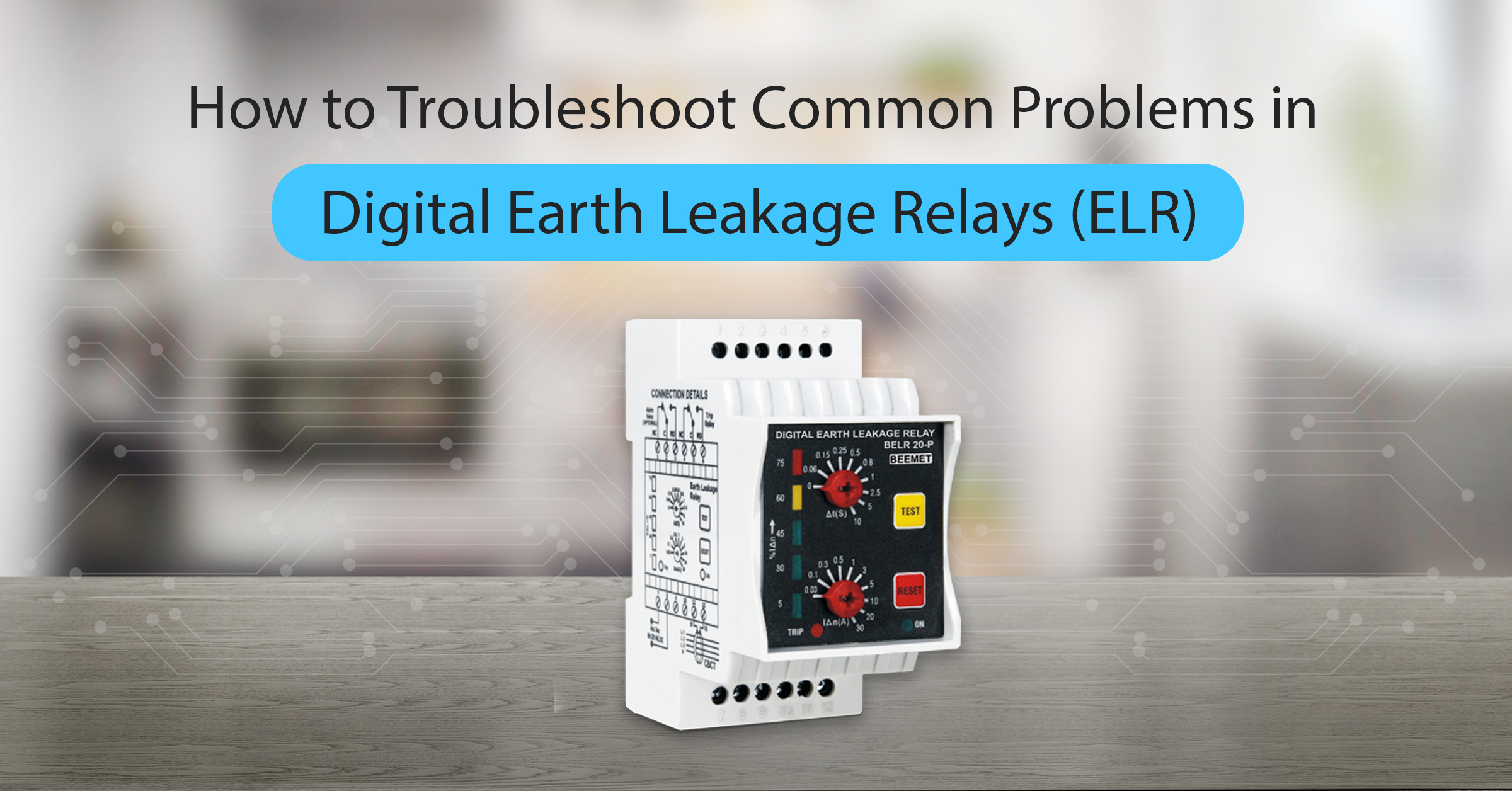Ever wondered how science labs make learning so hands-on? Educational meters turn boring theory into real experiments students can actually see and touch.
These aren’t regular measuring tools. They’re built tough for classrooms where curious minds are constantly testing and exploring.
Think of them as the bridge between textbook concepts and real understanding.
Whether measuring voltage or tracking temperature changes, these devices make science come alive.
They’re designed to handle enthusiastic students while staying super simple to use. Large displays and clear scales mean everyone gets accurate readings every time.
The best part? They transform ordinary classrooms into mini labs where students don’t just read about science but they actually experience it.
In this blog, we will dive deep into the world of educational meters, explaining their purpose, different types, working principles, and the numerous benefits they offer.
What are Educational Meters?
Educational meters are user-friendly portable monitor instruments specially designed for easy use in educational institutes and laboratories.
These meters can identify electric currents, degree voltage, or monitor temperature adjustments firsthand. These specialised devices are designed for academic settings, offer clean presentations, smooth-to-use controls, and a strong build for study room environments. These lab instruments are designed to withstand frequent use and ensure reliable classroom performance.
Educational meters are effective tools that can transform classrooms into mini laboratories. They have simplified scales, large displays, and functions like anti-parallax mirrors that make sure clear and accurate readings from every angle. This allows students of all ages to easily carry out experiments and accumulate information.
Types of Educational Meters

Educational meters come in various types to cater to various needs:
- Analog Meters: These meters have a needle that deflects on a scale to suggest the measured value. They are a classic choice for introducing students to the concept of measurement.
- Digital Meters: These meters display the measured value electronically on a screen. They offer high accuracy and ease of readings for college students.
- Multimeters: These flexible meters can measure more than one electric quantity like voltage, current, and resistance. They are ideal for more advanced science experiments.
How Do Educational Meters Work?
The working principle of an academic meter depends on its type. However, the core functions remain the same: to measure and display a scientific physical quantity. Here are a few common examples:
- Voltmeters: These meters display voltage in a circuit. Educational voltmeters commonly have a simple dial or digital display that suggests the voltage value.
- Ammeters: These meters measure current in a circuit. Similar to voltmeters, academic ammeters have easy to read displays for current measurement.
- Galvanometers: These meters detect the presence and direction of electrical current. Educational galvanometers generally have a needle that deflects based on the current flow.
- Thermometers: These meters are used to measure temperature. Educational thermometers are available in numerous forms which consist of digital displays or liquid-stuffed glass tubes with easy to read scales.
Applications of Educational Meters
Educational meters have a wide variety of applications across numerous science subjects such as:
- Physics: Students can use voltmeters and ammeters to discover electric circuits, apprehend Ohm’s Law, and experiment with various circuit configurations.
- Chemistry: Educational meters can be used to measure temperature changes all through chemical reactions, measure conductivity of solution, and examine the properties of various substances.
- Biology: Students can utilize thermometers to study plant and animal growth, monitor enzyme activity, and explore the effects of temperature on various organic strategies.
By incorporating educational meters into experiments and demonstrations, teachers can demonstrate scientific principles to life. Students gain practical experience with dimension, data collection, and evaluation, fostering a deeper expertise of scientific principles.
Advantages of Educational Meters

There are numerous benefits offered by educational meters such as:
- Hands-on Learning: Meters allow college students to actively take part in experiments and make real-time observations. This fosters engagement and a deeper understanding of scientific concepts.
- Improved Data Collection: Educational meters provide accurate and reliable data which allows college students to research results and draw significant conclusions.
- Development of Scientific Skills: Using meters allows students to develop scientific skills such as measurement, data recording, and interpretation.
- Increased Engagement: Interactive experiments with meters can boost student interest and motivation in learning science.
- Safety: Institutional meters prioritise safety with functions like durable casings and clear instructions which makes sure a safe learning environment.
Get Educational Meters with BEEMET
At BEEMET, we offer top notch educational meters that encourage curiosity and empower learning. Our meters are accurate, durable, easy to read with anti-parallax mirrors.
Our educational meters are meticulously designed to help educators on this task. Visit our website to explore our huge variety of educational meters, download free assets, and figure out how BEEMET can help you transform your classroom into a vibrant hub of scientific exploration!
Frequently Asked Questions:
- How secure are academic meters for classroom use?
Educational meters are designed with student safety in mind. They generally have functions like durable casings, protected terminals, and Instructions for proper use.
- How do I pick out the right educational meter for my classroom?
The best meter for your classroom depends on the age group, learning goals, and scientific principles you may be exploring. Keep in mind a few important factors like: student age, subject focus, and budget.
- Should I choose analog or digital meters for classroom use?
Analog meters help students understand basic concepts like needle movement and scale reading. Digital meters give precise readings, perfect for detailed experiments. Using both types helps students learn theory and practice together.



